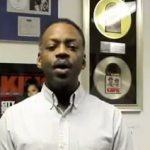Copyright Infringement: Elements Of A Copyright Infringement Claim
So you’re listening to your favorite radio station and hear a song that kinda sounds like it samples a mixtape track that you recorded and released last summer. You call up your manager and she confirms that the song sounds exactly like yours and that you might be the victim of a copyright infringement. You have no clue what she’s talking about, but you have enough sense to know that somebody owes you some money! You call your entertainment attorney to get more information.
WHAT IS A COPYRIGHT AND WHAT IS COPYRIGHT INFRINGEMENT?
Copyright is a legal protection that gives Authors the exclusive right to reproduce (copy), create derivative work (remix), distribute, publicly display, publicly perform, and digitally perform their musical works (lyrics and music) and sound recordings. Copyright infringement occurs when a person or entity uses a copyrighted work (like instrumentals, lyrics, video clips, or sound recordings) without the copyright owner’s permission. Infringement occurs, for example, when a sound recording is reproduced (or sampled), remixed, distributed, publicly performed, or digitally performed without the permission of the copyright owner. As is often the case, although the Author is initially granted these exclusive rights, he or she may “give” these rights away via a recording contract or “work for hire” agreement. In the case of a “work for hire” agreement, the employer would become the legal copyright owner.
The legal penalties for copyright infringement are quite steep. If found guilty, an infringer could end up paying statutory damages that range from $750 to $150,000 per work or actual damages and profits earned from each infringed work. Infringement penalties could also include all attorneys’ fees and court costs and/or jail time.
ELEMENTS OF A COPYRIGHT INFRINGEMENT CASE:
Before we even talk money, you’ve got to win the case! In order to bring a copyright infringement claim, you first need to establish two elements:
-
Ownership of the copyright: In order to sue someone for copyright infringement, you must first register your work with the US Copyright Office. To register your work, you need to complete the designated copyright form, deposit a copy of the work intended to be registered with the Copyright Office, and pay the registration fee. Caveat: You can’t sue for copyright infringement if you signed away your copyright ownership via a “work for hire” agreement—because you can’t sue for something that you don’t own. In that case, the “employer” or the person or entity that paid you to create the work, will likely file the copyright infringement claim.
-
Unauthorized appropriation: Big words, but quite simply it means that you must demonstrate that a third party used a “material amount” of your copyrighted work without your permission.
These two factors establish a basic copyright infringement claim. In your case, luckily you followed your music lawyer’s advise and registered your song with the U.S. Copyright Office a year before you decided to release the mixtape track and it’s clear that the song you heard exactly samples the chorus and the melody of your song!
Copyright infringement is further broken down into two types of infringement: Direct and Secondary.
Direct: In a direct infringement claim, you will need to establish that two works are similar and that a third party actually copied from your work—not that they independently created their work or copied from somebody else. To establish a direct infringement claim, you need to prove that the third party had ACCESS to your work and that the third party MISAPPROPRIATED or took “improper appropriation of copyrightable expression” from your work.
Again, in your case, you uploaded the song onto “SoundCloud” and had heard from other artists that software exists that can allow anyone to “rip” a song straight from the website and in researching this case, you’ve found out that this infringer is known for stealing other artists’ music. This would satisfy the “access” element and since the mixtape track samples the chorus and melody of your song, the misappropriation element is also satisfied.
So, in your music lawyer’s opinion, you may have a very strong direct infringement case against the infringing artist and her record label. However, the song is also up on SoundCloud so could you sue SoundCloud for copyright infringement? Would they be “secondarily liable?”
Secondary Liability occurs when one party “materially contributes to, facilitates, induces, or is otherwise responsible for directly infringing acts carried out by another party.” Simply put, secondary liability claims are the ones that shut down LimeWire and Napster!
To bring a secondary liability claim, you need to establish an underlying act of direct infringement. Then you would need to determine whether the third party contributed to the infringement by providing the means or website for an infringing activity with knowledge that the activity is taking place (like those free music download websites); or whether a third party has the right and ability to supervise the infringing activity and also has a direct financial interest (i.e., makes money off of the infringing activity). In this case, SoundCloud may be “off the hook” because although they have millions of songs on their site, they don’t have the knowledge that infringing activity is occurring. If they find out about such activities, under the DMCA (Digital Millennium Copyright Act), they have a duty to take down the infringing song. So, SoundCloud can’t be sued for Secondary Copyright Infringement in this case.
Copyright infringement sounds very complicated and it can be. However, copyright infringement claims are important for songwriters and musicians. It can be quite frustrating to find out that someone else has taken a song that you poured your heart and soul into—and even worse to find out they are making money off it! Lesson of the day: Be aware of who you share your creative material with and always register your song(s) with the Copyright Office before you start emailing it out to anyone! On the flipside, artists should take note and be mindful in trying to “write around” or “interpolate” a hot song that they’ve heard in an effort to write their own. You wouldn’t want to end up on the wrong side of a copyright infringement case!
If you believe that you might be the victim of a copyright infringement and you have a copy of the copyright registration, please call my office for a free consultation.





After looking into a handful of the blog posts on your site, I truly appreciate your technique of blogging. I added it to my bookmark site list and will be checking back in the near future. Please check out my web site too and tell me your opinion.
Hi to all, the contents existing at this web site are actually
remarkable for people knowledge, well, keep up the nice
work fellows.